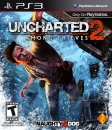Reasonable said:
In Western movies, particularly US movies, you have the following structure: 1 - early lock of the conflict (i.e. who is who and what needs to be done and what will happen if you fail) 2 - you then have a number of challenges to overcome that take you closer and closer to resolving the conflict 3 - You then have resolution
Every Western RPG like Mass Effect, Oblivion, Fallout 3, etc. I've played has used US movie template for structure. So in Mass Effect in the first mission the story is set (the conflict is you have to catch up with Saren and stop him), a few clues are sprinkled (what is that strange ship), you then have a series of linear challenges that take you closer and closer to the end while revealing the plot, then a big resolution that wraps everything up whose basis is essentially you finally catching up with Saren as 'locked' right at the beginning of the story. Side quests are just that, side quests which are either small or if larger (say the big side quests in Oblivion) then they have their own arc which uses the same structure. In Mass Effect however, the side quests are frankly a bit rubbish, and are not large enough to warrant more than go here, get this, fight these guys and return. In Oblivion and Fallout 3 though, there are larger side quests which essentially repeat the formula - for example the Theives Guild side quest in Oblivion. If you look at the main story in most Western RPGs is basiclly operates like a Hollywood film in terms of how the story is told and the structure used. Dragon Age I think from what I've seen (I've yet to get it for PC but will soon) looks like it will try and evolve the narrative a bit more. Fable 2 tried as well, with okay but uneven results. In the end, as someone who studies film, I see games improving but its still apparent the skillset of those setting the narrative are still somewhat lacking compared to other entertainment industries - but this is improving steadily, and for games that want good dialogue, narrative, etc. I only expect things to improve. Of course, at the same time, you're going to see more and more titles like Modern Warfare 2 go what I now think of as the Transformers 2 route - cut everything required for a real narrative or story of depth, rely on sterotypes and focus on nothing but the action that takes place between events. But I doubt RPGs will go this route, thankfully.
|
It's true, even as someone who doesn't study film I can see that currently games storylines are generally quite bad and generic in comparison to films and books. However, I would point out that due to the interactivity of games the storyline isn't quite as important as the way the story is conveyed to the player and the influence the player can have on the details within that story.
I would also point you towards Planescape Torment and Deus Ex as games with high quality storylines (More planescape torment, but I feel Deus Ex's narrative was compelling as well).





















































